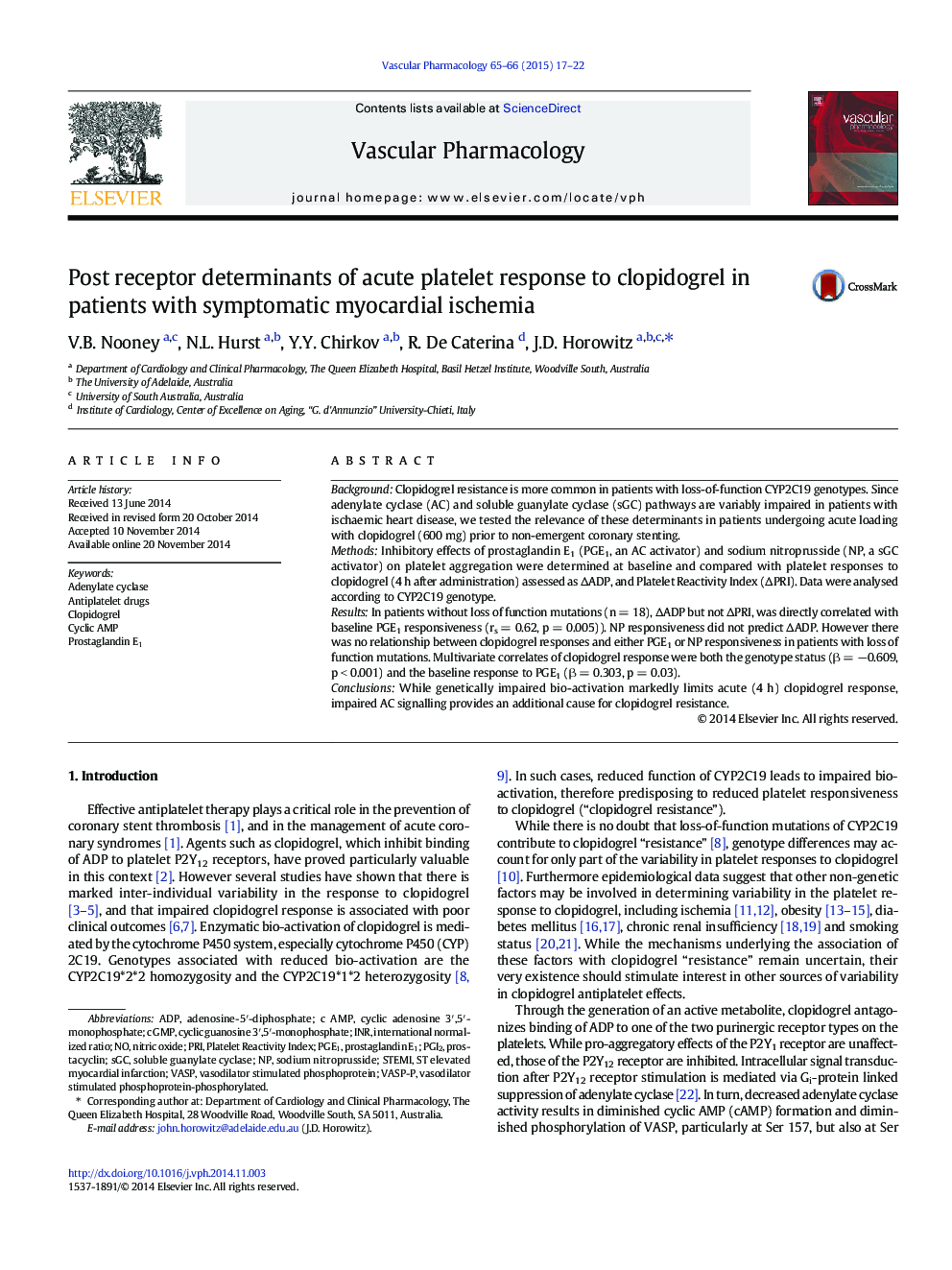| Article ID | Journal | Published Year | Pages | File Type |
|---|---|---|---|---|
| 2574134 | Vascular Pharmacology | 2015 | 6 Pages |
BackgroundClopidogrel resistance is more common in patients with loss-of-function CYP2C19 genotypes. Since adenylate cyclase (AC) and soluble guanylate cyclase (sGC) pathways are variably impaired in patients with ischaemic heart disease, we tested the relevance of these determinants in patients undergoing acute loading with clopidogrel (600 mg) prior to non-emergent coronary stenting.MethodsInhibitory effects of prostaglandin E1 (PGE1, an AC activator) and sodium nitroprusside (NP, a sGC activator) on platelet aggregation were determined at baseline and compared with platelet responses to clopidogrel (4 h after administration) assessed as ∆ADP, and Platelet Reactivity Index (∆PRI). Data were analysed according to CYP2C19 genotype.ResultsIn patients without loss of function mutations (n = 18), ∆ADP but not ∆PRI, was directly correlated with baseline PGE1 responsiveness (rs = 0.62, p = 0.005)). NP responsiveness did not predict ∆ADP. However there was no relationship between clopidogrel responses and either PGE1 or NP responsiveness in patients with loss of function mutations. Multivariate correlates of clopidogrel response were both the genotype status (β = −0.609, p < 0.001) and the baseline response to PGE1 (β = 0.303, p = 0.03).ConclusionsWhile genetically impaired bio-activation markedly limits acute (4 h) clopidogrel response, impaired AC signalling provides an additional cause for clopidogrel resistance.
Graphical abstractFigure optionsDownload full-size imageDownload high-quality image (55 K)Download as PowerPoint slide
